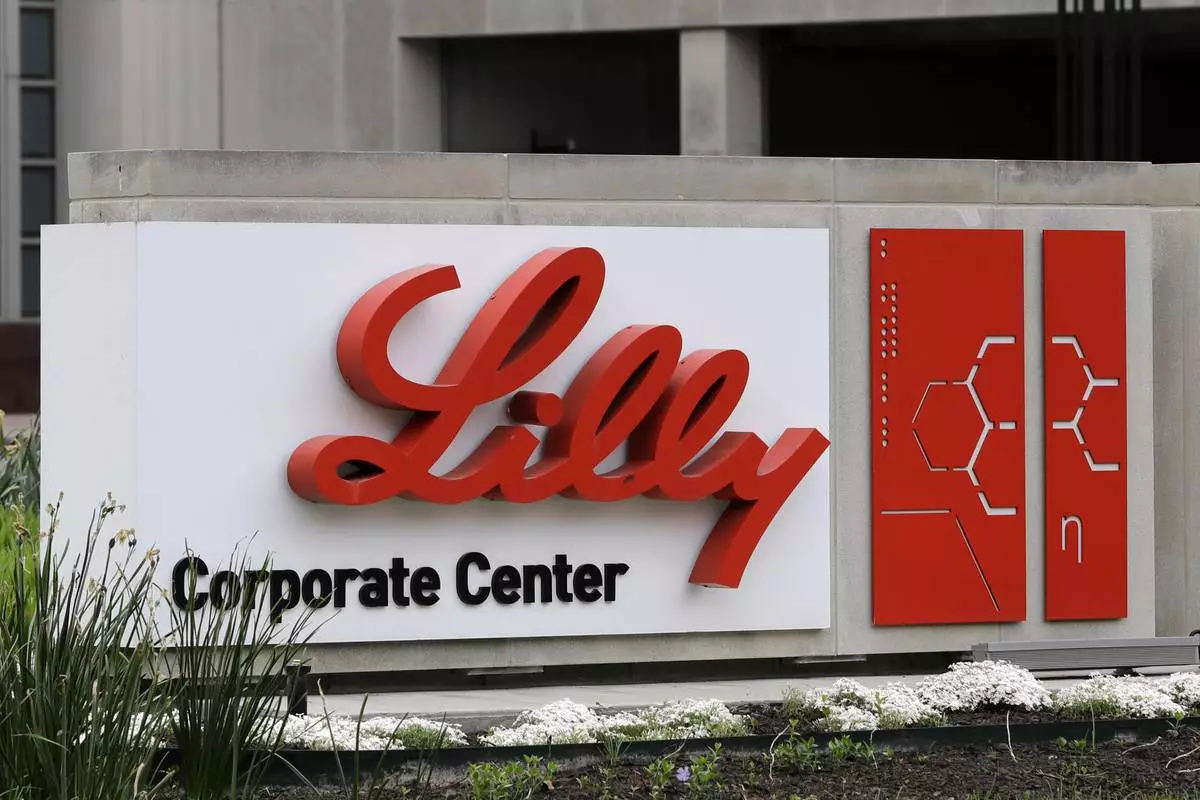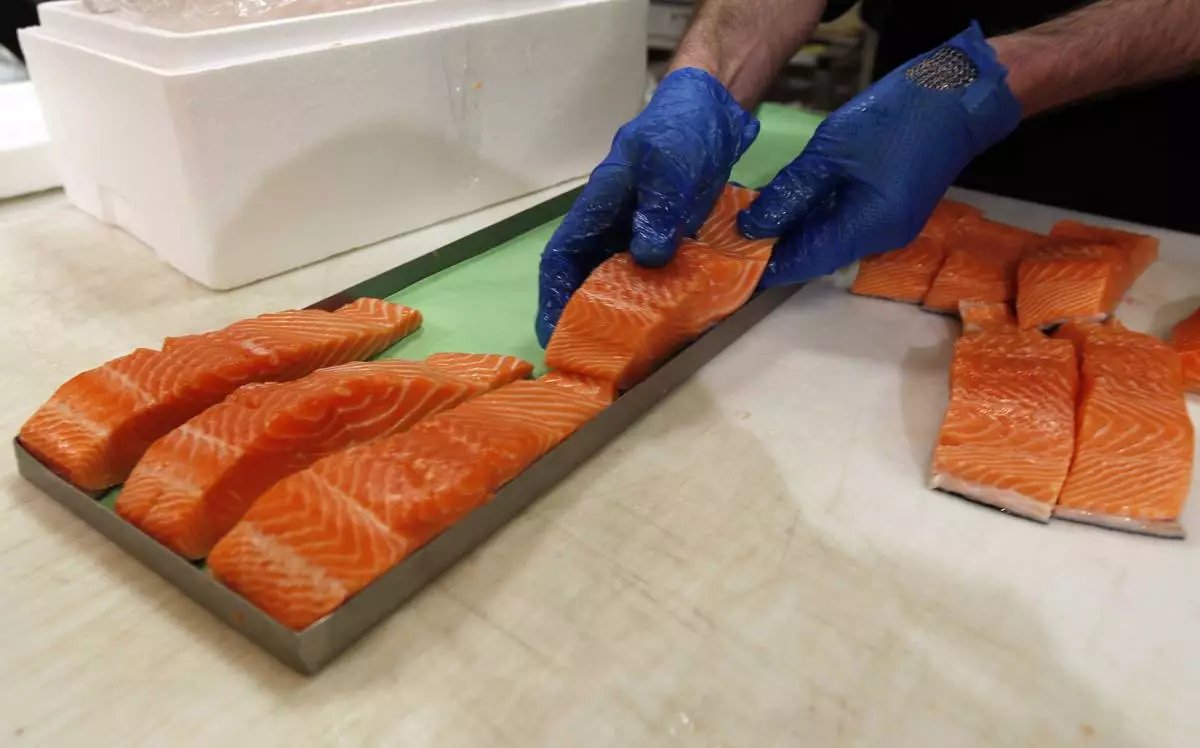WASHINGTON (AP) — Specialty pharmacies and online companies that have been selling off-brand copies of two blockbuster drugs for obesity and diabetes will need to phase out their versions next year under a federal decision issued Thursday.
The Food and Drug Administration said that a nationwide shortage of Eli Lilly’s Zepbound and Mounjaro has been resolved, eliminating the need for copycat versions of the drugs that have become wildly popular with Americans trying to lose weight.
The decision is a win for Lilly — which had been pressing the FDA to take the step for months — and is expected to impact how patients access the drugs, including how much they pay.
Zepbound is FDA-approved to treat obesity and Mounjaro is approved for diabetes. They use the same active ingredient, tirzepatide.
The FDA said Thursday that “Lilly’s supply is currently meeting or exceeding demand,” after two years of shortages.
Both drugs are part of the GLP-1 class that has shown unprecedented results for helping people shed weight by decreasing appetite and boosting feelings of fullness. Wegovy and Ozempic — competing drugs from Novo Nordisk — remain on the FDA’s shortage list.
With demand for GLP-1 drugs booming, compounding pharmacies and telehealth companies like Hims and Ro have jumped into the market, selling cheaper versions online. People can usually get a month's supply for several hundred dollars.
Thursday’s decision gives businesses between 60 and 90 days, depending on their size, to phase out their products.
The FDA permits compounded versions of brand name drugs when they are in shortage, and the shift back to Lilly’s medications could improve safety for consumers. The FDA warned patients last year about problems with the ingredients and formulations of some GLP-1 drugs sold online. The agency has limited oversight of compounding pharmacies, which are primarily overseen by state authorities.
Compounding pharmacies use raw drug ingredients to produce customized versions of prescription medications — for instance, when patients have allergies to certain ingredients. The industry has grown into a multibillion-dollar business over the past decade amid increasing drug shortages.
Demand for off-brand GLP-1 drugs has been amplified by aggressive online promotions from telehealth companies, which aren’t subject to the same marketing rules as drugmakers.
The FDA previously declared an end to the shortage of Mounjaro and Zepbound in early October, but reversed its decision after public pushback and a lawsuit filed by compounding pharmacies.
The Associated Press Health and Science Department receives support from the Howard Hughes Medical Institute’s Science and Educational Media Group. The AP is solely responsible for all content.

FILE - A closeup of a beam scale is seen in New York on April 3, 2018. (AP Photo/Patrick Sison, File)

FILE - A sign for Eli Lilly & Co. stands outside their corporate headquarters in Indianapolis on April 26, 2017. (AP Photo/Darron Cummings, File)
Packaged foods in the U.S. will have to follow new rules in order to call themselves “healthy,” according to changes finalized Thursday by the Food and Drug Administration.
It’s an update of the agency’s definition originally devised 30 years ago. The move is aimed at helping Americans navigate food labels at the grocery store and make choices that are aligned with federal dietary guidelines — in hopes of reducing rates of diet-related chronic disease, the FDA said.
Under the rule, products that claim to be “healthy” must contain a certain amount of food from one or more food groups such as fruit, vegetables, grains, dairy and protein. And for the first time, the rule sets certain limits for added sugars. Foods must also limit sodium and saturated fat at levels that depend on the type of product, the FDA said.
The change banishes foods such as sugary cereals, highly sweetened yogurts, white bread and some granola bars from bearing a “healthy” label, while allowing foods such as avocados, olive oil, salmon, eggs and some trail mix to use it. Even water can now be labeled as healthy, the agency said.
“It's critical for the future of the country that food be a vehicle for wellness,” FDA Commissioner Robert Califf said in a statement. “Improving access to nutrition information is an important public health effort the FDA can undertake to help people build healthy eating patterns.”
The new rule will take effect within two months and food manufacturers will have until February 2028 to comply. A label that designates certain foods as healthy is still being developed, FDA officials said. Under the previous rule, about 15% of products were eligible for the healthy designation, but only 5% made the claim.
First proposed in 2022, the change is a much-needed update to “horribly outdated” guidance, said Dr. Dariush Mozaffarian, director of the Food is Medicine Institute at Tufts University.
“Big picture, this is a huge improvement from a 30-year-old outdated definition based on 40-year-old science,” he said.
The new rule acknowledges that dietary and nutrition knowledge has progressed over three decades and that the previous definition didn’t jibe with dietary guidelines that are the cornerstone of federal programs and policies.
Consumer Brands Association, a food industry trade group, said that the new rule “stands to exclude some packaged foods, despite countless years of industry innovation to provider healthier options.”
Sarah Gallo, an official for the group, said it is concerned the new rule “is not based on clear and unambiguous scientific evidence” and doesn't fully consider the full potential economic impact on consumers.
The updated criteria are based on data that could improve public health, including diet-related chronic ailments such as heart disease and diabetes, the FDA said.
More than three-quarters of Americans have diets low in vegetables, fruit and dairy, according to the FDA. Nearly 80% exceed limits on saturated fat, more than 60% exceed limits on added sugars and about 90% exceed limits on sodium that can reduce chronic disease.
The Associated Press Health and Science Department receives support from the Howard Hughes Medical Institute’s Science and Educational Media Group. The AP is solely responsible for all content.

FILE - Canadian certified organic farm-raised King Salmon filets are placed on a tray in a store in Fairfax, Va., April 10, 2015. (AP Photo/Alex Brandon)












